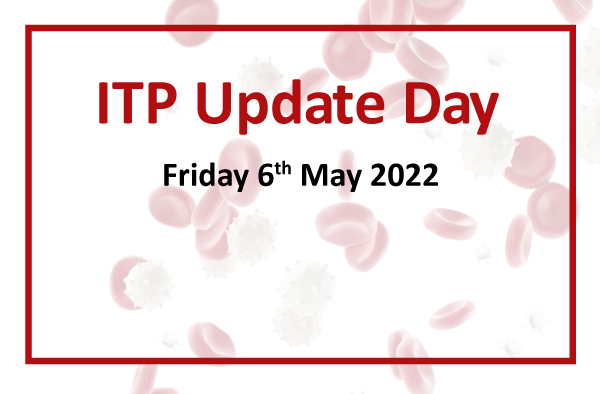On Friday 6th May 2022 the “ITP Update Day”, a traditional appointment for healthcare professionals interested in ITP will take place in London.
Hosted by Dr. Nichola Cooper at the Cavendish Conference Centre, a group of International experts in ITP will meet and discuss about several aspects of the disease, with the aim to provide an overview on clinical and treatment updates, also in light of the COVID-19 pandemic.
Let’s briefly have a look at the program: the first session is dedicated to Registry Data, with updates on the UK ITP registry, the ITP Association and ITP forum; an update concerning European activities will also be provided, including those carried out by the ERCI group (the European Research Consortium on ITP).
The COVID-19 pandemic has significantly changed the clinical approach to many diseases, including ITP, especially considering the load of immunosuppression that burdens such patients. And for this reason treatment algorithms have been questioned and sometimes, at least partly, modified. An update of guidelines for first-line treatment during the pandemic will be presented, and there will be a focus on the early use of thrombopoietin mimetics, which has been in some way encouraged by the pandemic.
An entire session will deal with the topic of ITP and COVID-19, exploring the theme of Vaccines and the impact of COVID-19, the debatable use of Rituximab in COVID patients and the real-life, French experience of ITP in the COVID-19 pandemic.
Experts will also deal with complex clinical cases, that remain a challenge – sometimes impossible -for clinicians all over the world, but that represent a chance for questioning about differential diagnosis and the heterogeneous pathogenesis of the disease.
In the last few years, several novel drugs have been investigated in clinical trials with promising efficacy, and some of them have already received marketing authorization, meaning that in the next future a wide range of new molecules will be available for physicians. Many aspects concerning the introduction of these new drugs into clinical practice will be outlined along the way, and will help physicians in the choice of the best treatment modality or treatment combination for each patient.
The last session of the meeting will therefore focus on new treatments, and in particular on BTK inhibition, SYK inhibition, FcRn inhibition, and ongoing and future novel trials and observational studies.

